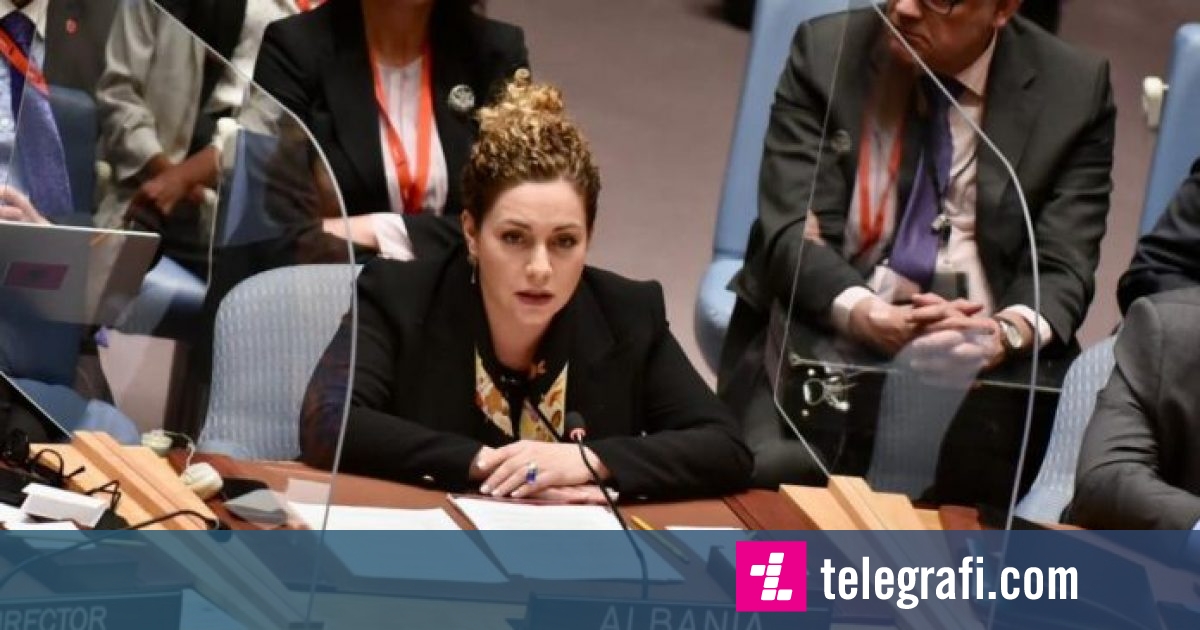Albania's Minister for Europe and Foreign Affairs, Olta Xhaçka, stated today that the war in Ukraine is threatening the future global food security and that we should not be allowed to see people starving to death in the 21st century.
At the invitation of the Secretary of State, Antony Blinken, Minister Xhaçka participated today in the work of the UN Security Council, on the "Food Security Conflict and Hunger".
Yesterday we had an important discussion about the launch of the "Call for Global Action for Food Safety", which Albania joins without hesitation.
"We greatly appreciate your personal contribution and the leadership of the United States in focusing the Security Council's attention on the factors that promote food security worldwide," said Minister Xhaçka in her speech.
According to her, today's conflicts, long-term crisis and the recurrence of chronic food insecurity are more complex and are lasting a long time.
"It is undeniable that the conflict is now the main driver of hunger and food insecurity.
As we heard during yesterday's discussion, but also this morning, the number of people experiencing worldwide hunger and suffering from food insecurity has increased since 2014. In conflict-affected countries, civilians have been attacked and continue to be attacked, killed and forcibly displaced.
"The destruction of civilian infrastructure and other aspects necessary for the survival of the civilian population drastically reduce the ability to produce food or earn an income," she said.
The Minister noted that the conflicts contribute to the deepening of existing inequalities and for two years now, COVID-19 and climate change, have further aggravated the situation.
"Nearly 193 million people are extremely insecure about food and need urgent help in 53 countries.
In Yemen, Syria, Afghanistan, the Democratic Republic of the Congo, South Sudan, Haiti and elsewhere, millions of people are in need of food;
"Millions do not know when their next meal will come," said the minister.
Minister Xhaçka further stressed that Russia's aggression against Ukraine is further deteriorating global food security, which is affecting the whole world.
The blockade, the destruction of ports and its infrastructure in the Black Sea, the minister continued, is disrupting the vital supply of foodstuffs and key agricultural products, which are essential for global food security.
"There is food in Ukraine, but it is not allowed to go abroad.
This is unacceptable and must be stopped.
The severe disruption of production, trade, and rising global prices for fuel, food, and energy as a result of the war are exacerbating existing inequalities in affected regions, jeopardizing food security, exacerbating existing humanitarian crises, and pushing more people into poverty.
The war in Ukraine could lead up to 40 million more people to poverty and hunger and is threatening the future global food security.
This is the sad reality;
"This is the truth," she said.
According to Xhacka, the year 2022 is predicted to bring food insecurity.
"We must not allow ourselves to see people starving to death in the 21st century.
"Through Resolution 2417, the Security Council has acknowledged that hunger and conflict feed into each other in a vicious circle and has stated that threatening the hunger of civilians as a method of war could constitute a war crime."
The resolution, according to her, is a call to action, based on humanitarian principles.
"The resolution calls for the effective implementation of international humanitarian law and accountability for those who violate it.
It also emphasizes the importance of humanitarian access, as an essential need.
We have the tools, we must use them.
We call for a more active role of the Council in addressing and addressing the "hunger" caused by this conflict.
Early warning and action lead to prevention.
Preventing the "hunger" caused by the conflict requires the observance of international humanitarian law by all parties to the conflict.
"Humanitarian actions and respect for international humanitarian law can only mitigate the effects of a conflict on food systems, but political solutions are urgently needed to end conflicts," Xhaçka said.
The Minister in her speech among other things said that addressing food insecurity worldwide requires urgent and coordinated multilateral action, in some key aspects.
"First, we need to address the causes of food, humanitarian, development crises, long-standing structural problems that make food systems vulnerable, and increase sustainability.
Second, there must be a coordinated multi-sectoral response to development, humanitarian and peace initiatives in order to reduce the risk of future conflict.
Third, actions through the UN system and international financial institutions must lead to investments in sustainable food systems and gender equality.
Food security funding is an important component.
Fourth, better and timely reporting is needed.
The Security Council has the unique ability to request and provide periodic reporting, data and timely action on food insecurity situations.
In this context,
The Minister underlined that no one should be hungry.
"If we want to end hunger, to guarantee food security, we must act to prevent and stop conflicts, by choosing peace and development," Xhaçka said.
